Are Protein Powders A Good Choice For People With Diabetes?
Managing diabetes involves making thoughtful choices about food. One question that often arises is whether protein powders are a diabetic friendly option.

Understanding diabetes
Diabetes is a chronic condition characterised by elevated blood sugar levels. There are two main types: Type 1 and Type 2.
While Type 1 diabetes is an autoimmune condition, Type 2 is often linked to lifestyle factors and is more prevalent.
Both types involve concerns about insulin sensitivity and blood sugar management.
The role of protein in diabetes management
Protein plays a crucial role in a balanced diet, more so for people with diabetes. Unlike carbohydrates, protein has a lesser impact on blood sugar levels.
Research involving men who have type 2 diabetes showed that increasing protein consumption to make up 30% of their total caloric intake, along with reducing carbs by 50%, led to better control of blood sugar and increased insulin sensitivity.
Additionally, protein can aid in appetite control by suppressing the release of ghrelin, the hormone responsible for hunger, which in turn can lead to a reduction in overall caloric intake.[1]
Protein supplements such as powders can be a useful tool to:
- Meet your daily protein needs
- Control blood sugar
- Manage hunger and calorie intake.
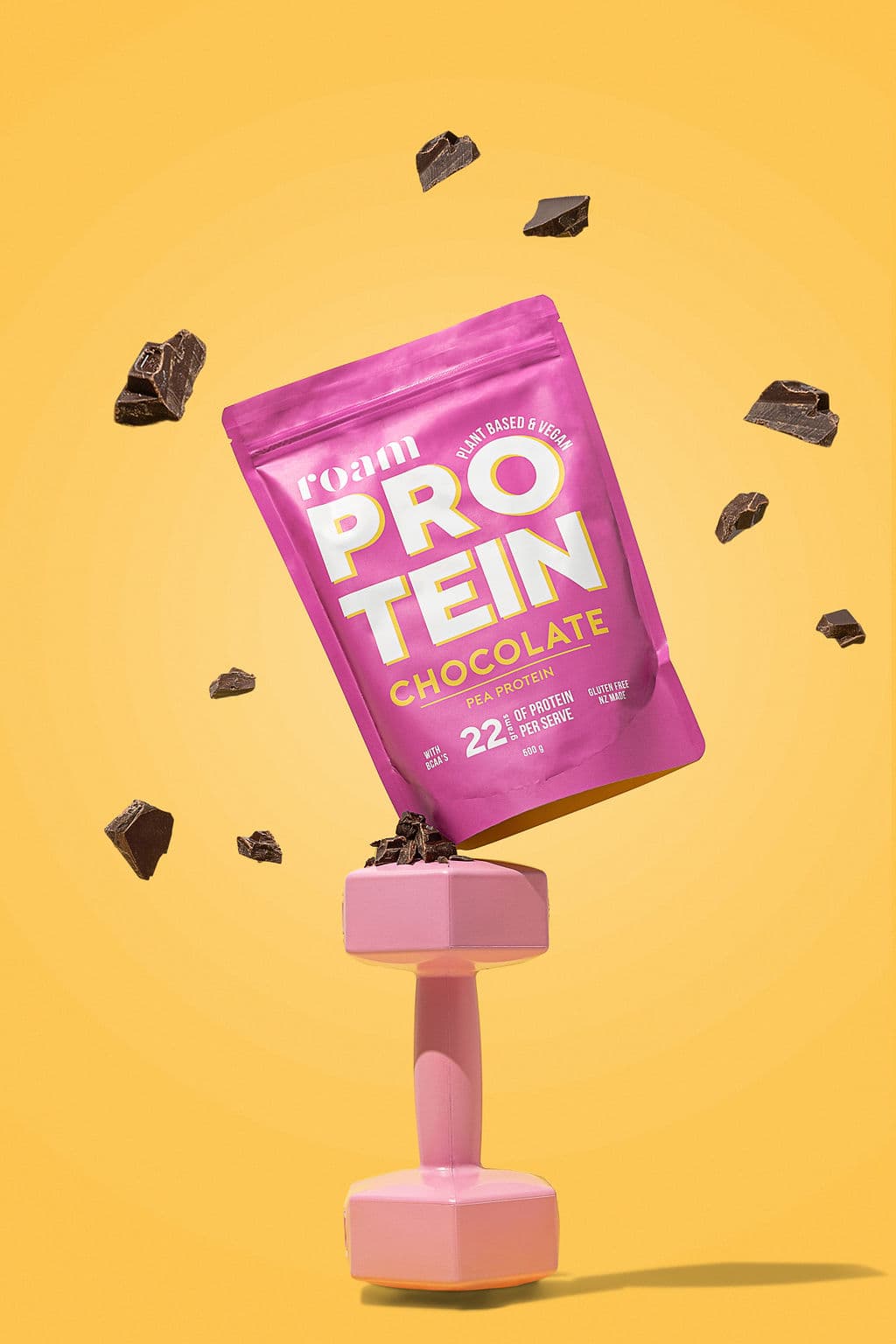
What to Look for in a Protein Powder
When choosing a protein powder, it's essential to look for options that are low in carbohydrates and sugars. Artificial sweeteners, often used in protein powders, should also be approached with caution as they can affect insulin sensitivity.
A high-protein, low-carb formula is generally the best choice for people with diabetes.
Meal replacement shakes may be high in protein, but they often contain carbohydrates using highly refined sources of carbs like maltodextrin.
Similarly, sports recovery shakes can have high levels of carbohydrates. It's also advisable to check for any added fillers or unnecessary ingredients that could affect blood sugar levels.
Roam Protein
Roam Protein stands out as a diabetic-friendly protein option for several reasons. Firstly, it contains less than 2g of carbs and 22g of protein per serving, aligning well with the needs of a diabetic-friendly diet.
Roam Protein uses monk fruit extract as a natural sweetener, containing no calories nor carbohydrate. It does not affect insulin or blood sugar levels, and is considered a safe option for people with diabetes.
Secondly, it is made with clean ingredients and is independently batch tested for over 250 substances banned by the World Anti-Doping Agency (WADA). This ensures you're getting a high-quality, trustworthy product.
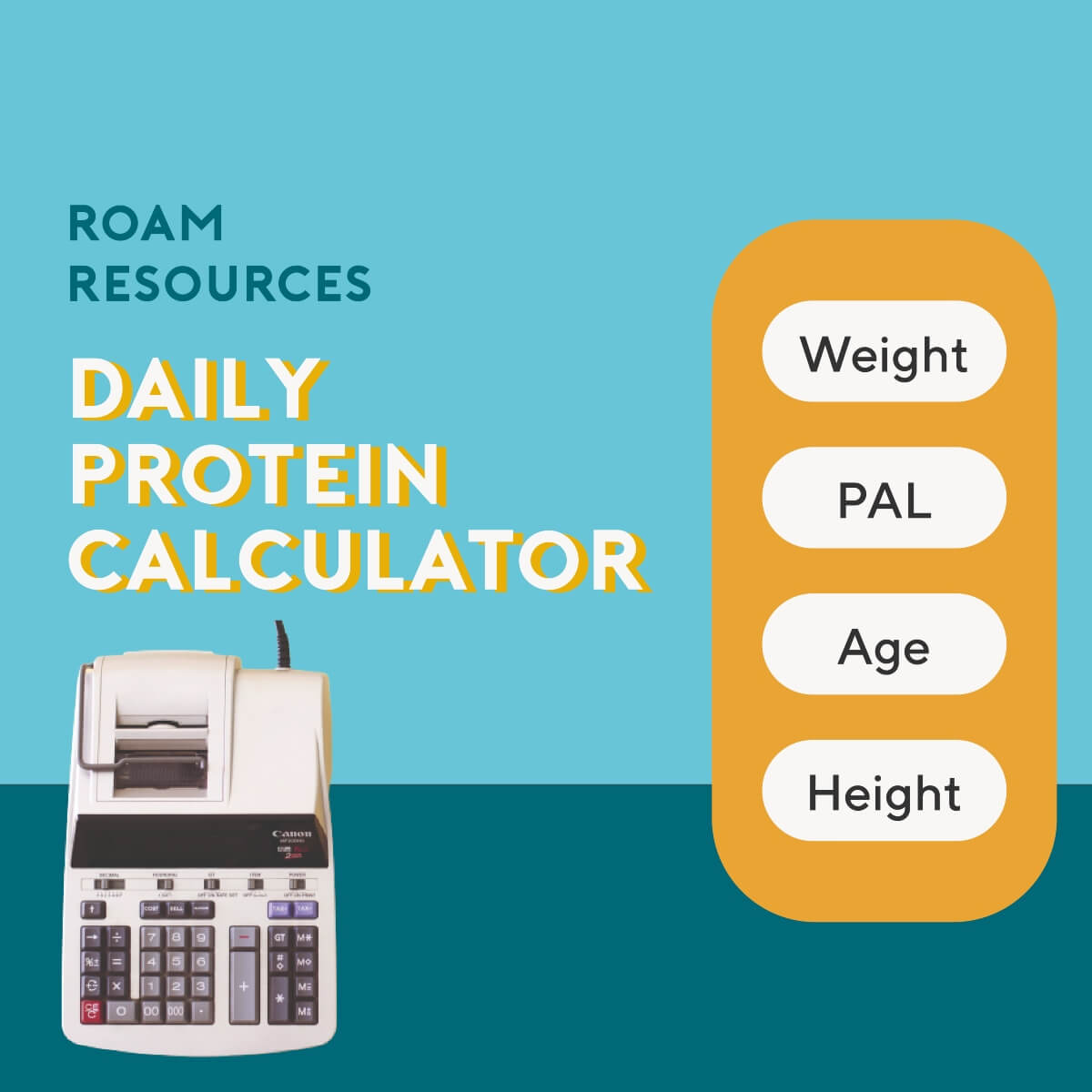
How Does Protein Powder Affect Insulin Levels and Blood Sugar?
Many people think that protein has a significant impact on insulin levels, but that's not usually the case. Consuming protein does trigger a minor insulin response, but it's typically not a concern for individuals with diabetes.
What you need to be cautious about is what you mix your protein powder with. For example, if you blend Roam Protein with water, you'll keep the carbohydrate content low. However, if you opt for certain types of milk, you could inadvertently increase the sugar count. This is especially true for plant-based milks, which are often sweetened.
Always check the nutritional information of any liquid or additive you're considering. The good news is that Roam Protein is versatile; it mixes well with water, various milks, and can even be used in baking. Just be sure to read ingredient labels carefully to avoid hidden sugars or carbohydrates.
How much protein do I need?
According to Dr. Peter Attia [2], the current U.S. guidelines for daily protein intake, which are similar to those of the World Health Organization, are a joke. While the recommended dietary allowance (RDA) for protein currently 0.8 grams per kilogram of body weight, this is the minimum amount to sustain life, not to thrive.
A more optimal range for protein consumption is between 1.6 to 2.2 grams per kilogram of body weight. However, the ideal amount can vary based on factors such as age, weight, and level of physical activity.
To get a more accurate estimate of your protein needs, you can use our daily protein calculator.
References
Nutall, F.Q., and Gannon, M.C. (2006). The metabolic response to a high-protein, low-carbohydrate diet in men with type 2 diabetes mellitus. Metabolism 55, 243-251. https://doi.org/10.1016/j.metabol.2005.08.027
Dr Peter Attia (2023). Outlive: The Science & Art of Longevity. Page 331.
Shop Roam Protein
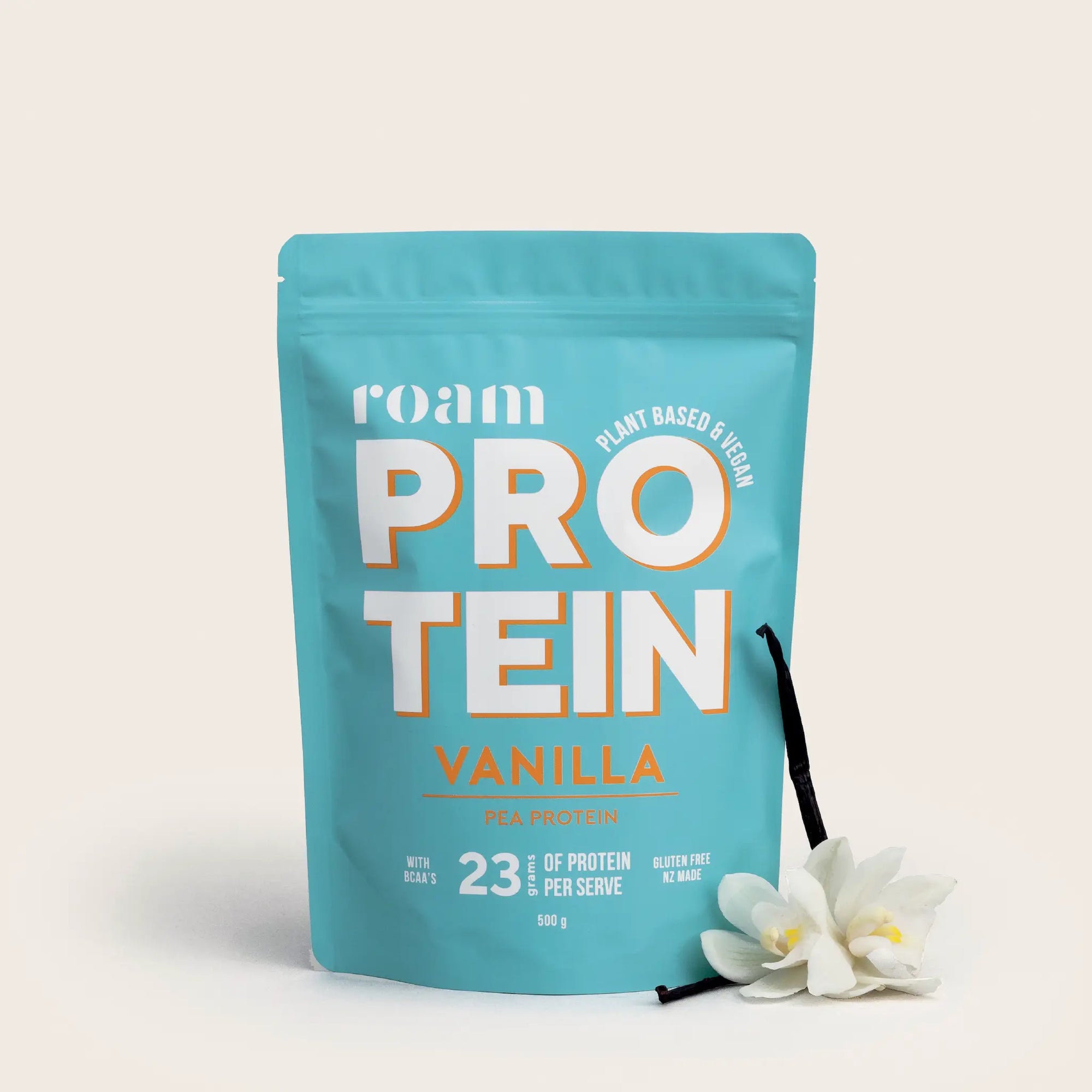
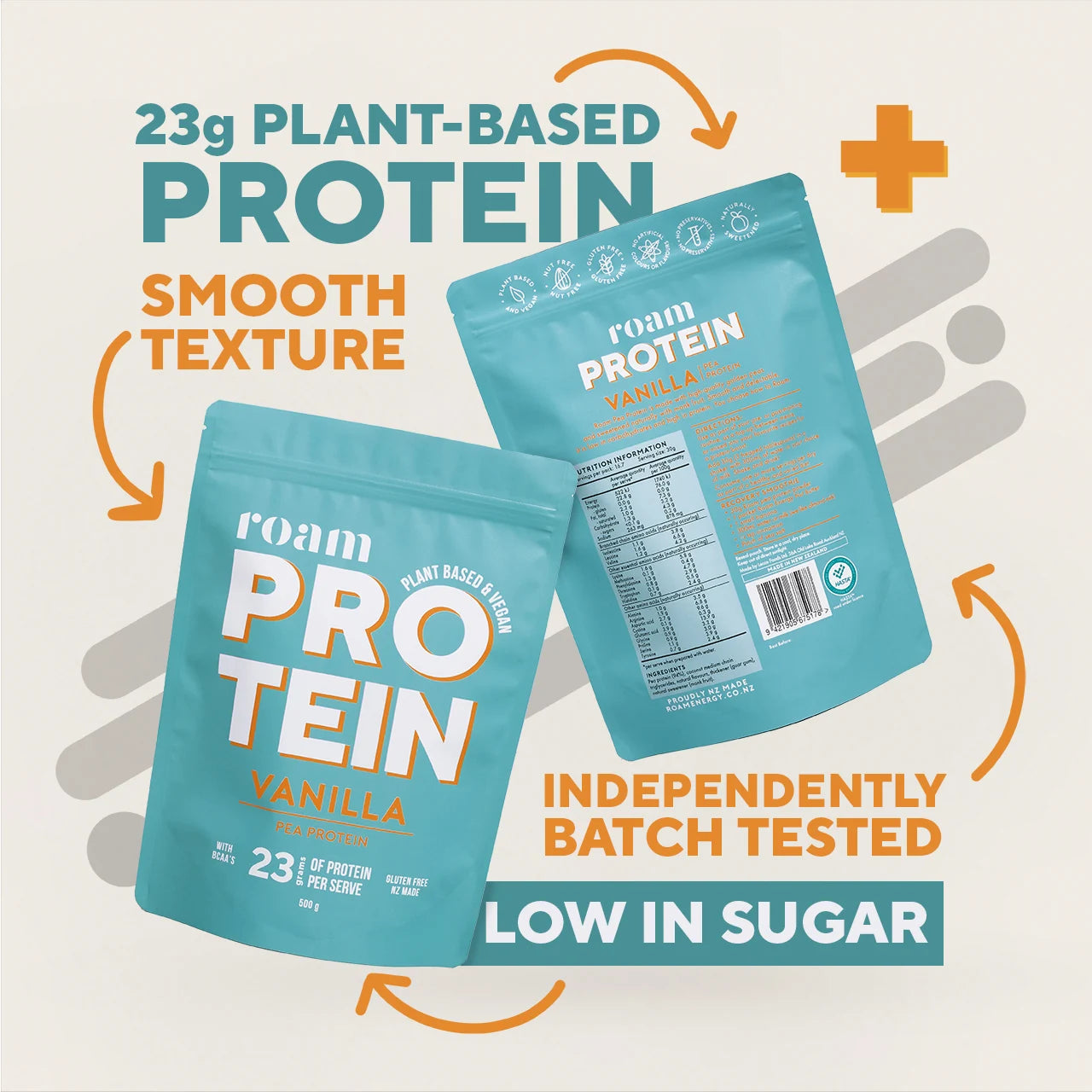 Vanilla Plant Protein
Vanilla Plant ProteinVanilla Plant Protein
Regular priceUnit price per$49.99 NZDSale price $39.99 NZD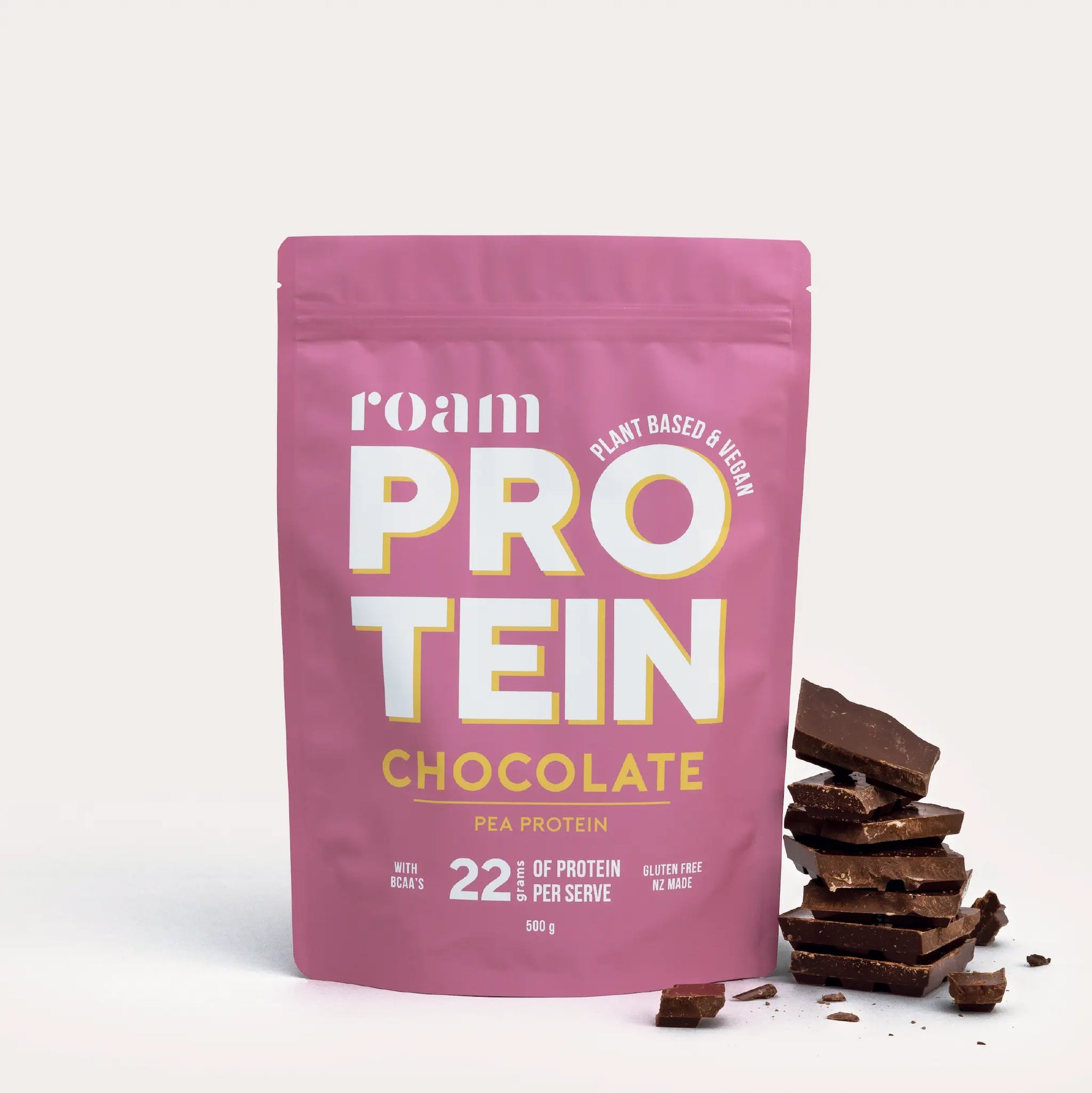
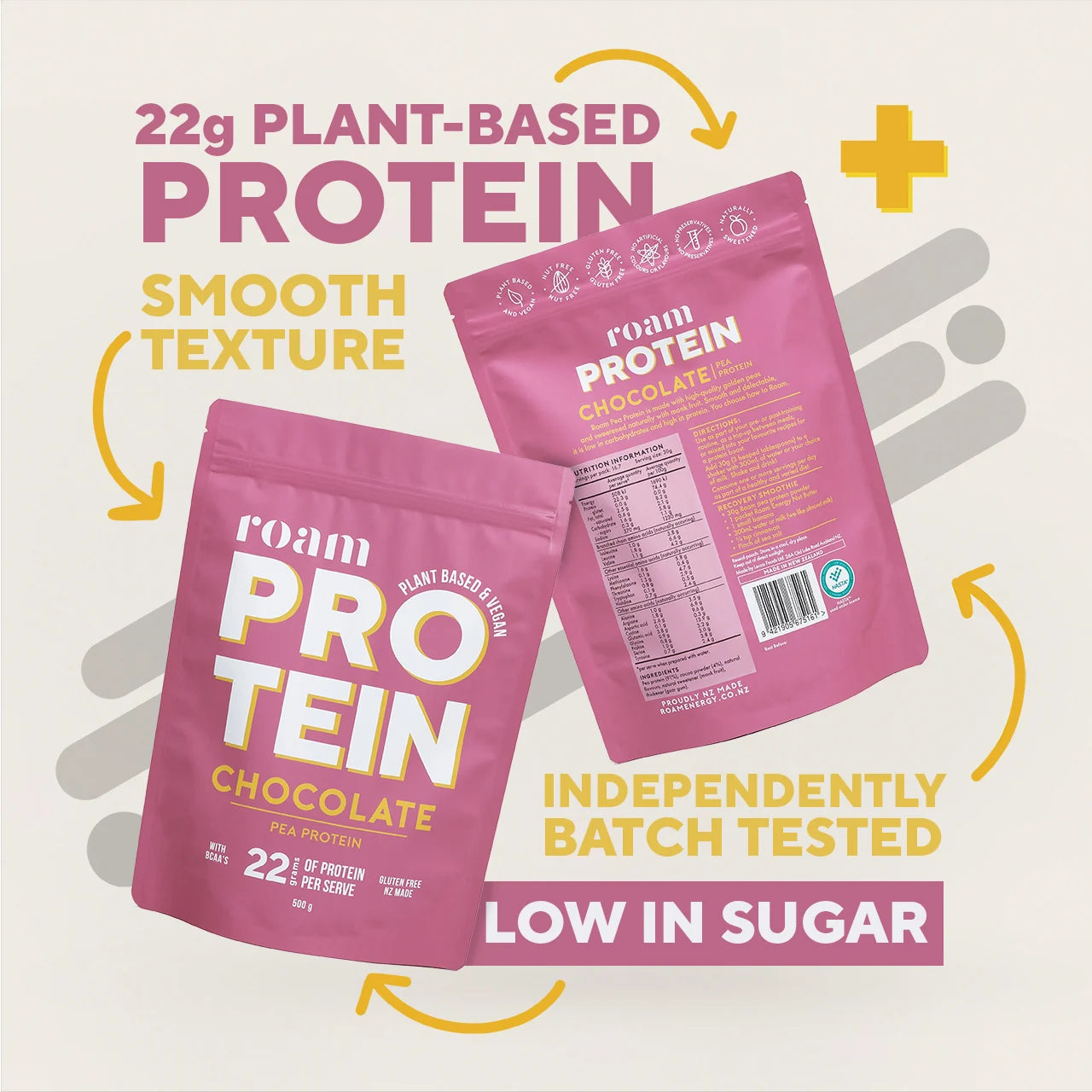 Chocolate Plant Protein
Chocolate Plant ProteinChocolate Plant Protein
Regular priceUnit price per$49.99 NZDSale price $39.99 NZD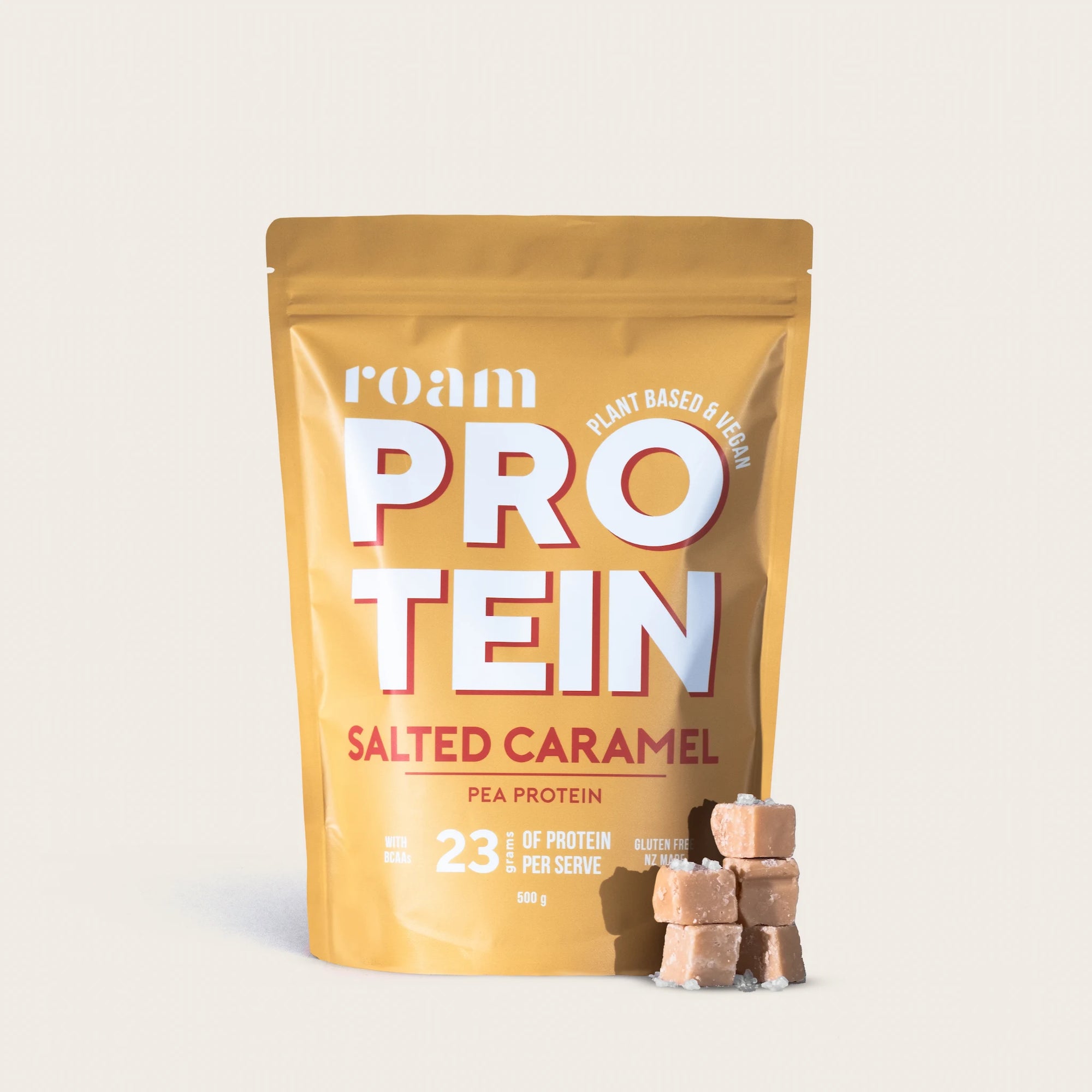
 Salted Caramel Plant Protein
Salted Caramel Plant ProteinSalted Caramel Plant Protein
Regular priceUnit price per$49.99 NZDSale price $39.99 NZD
 Protein Variety Pack – 90g Protein (3 Flavours)
Protein Variety Pack – 90g Protein (3 Flavours)Protein Variety Pack – 90g Protein (3 Flavours)
Regular priceUnit price per$38.97 NZDSale price $24.99 NZD








